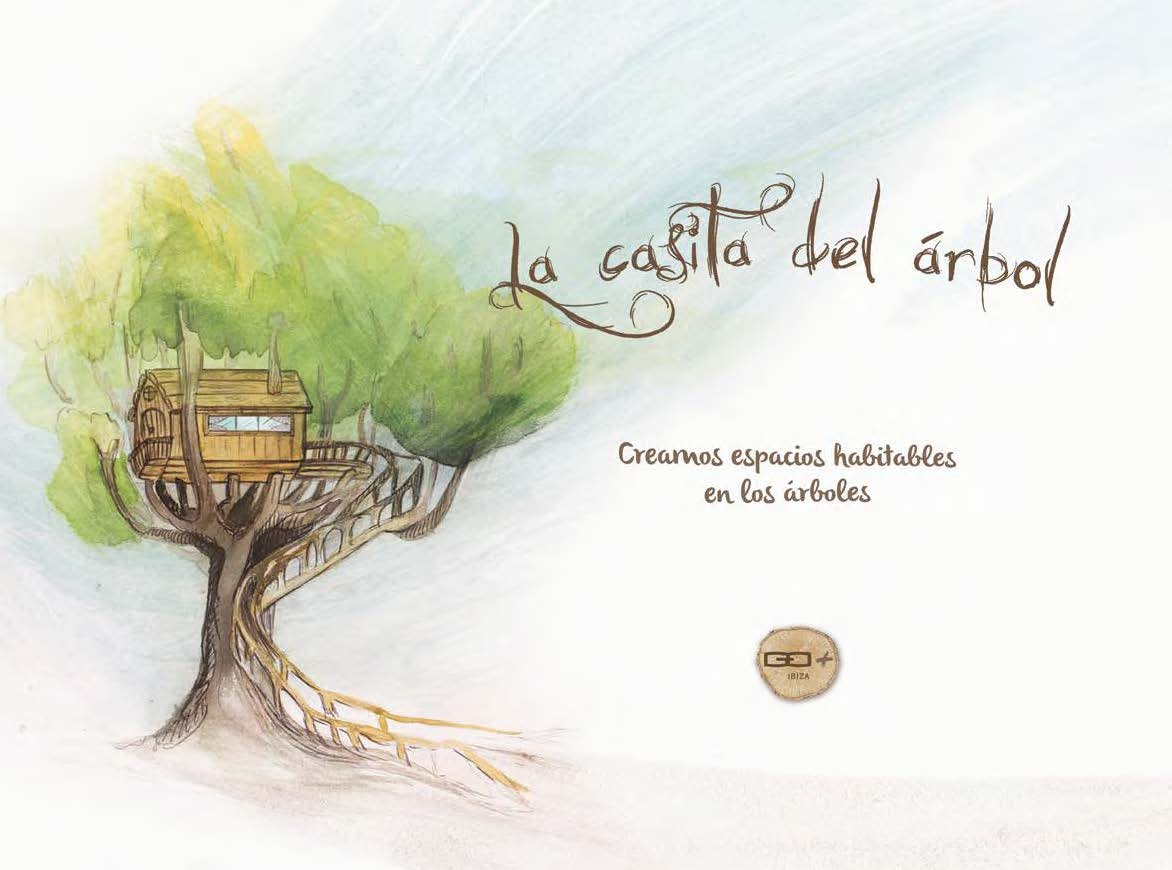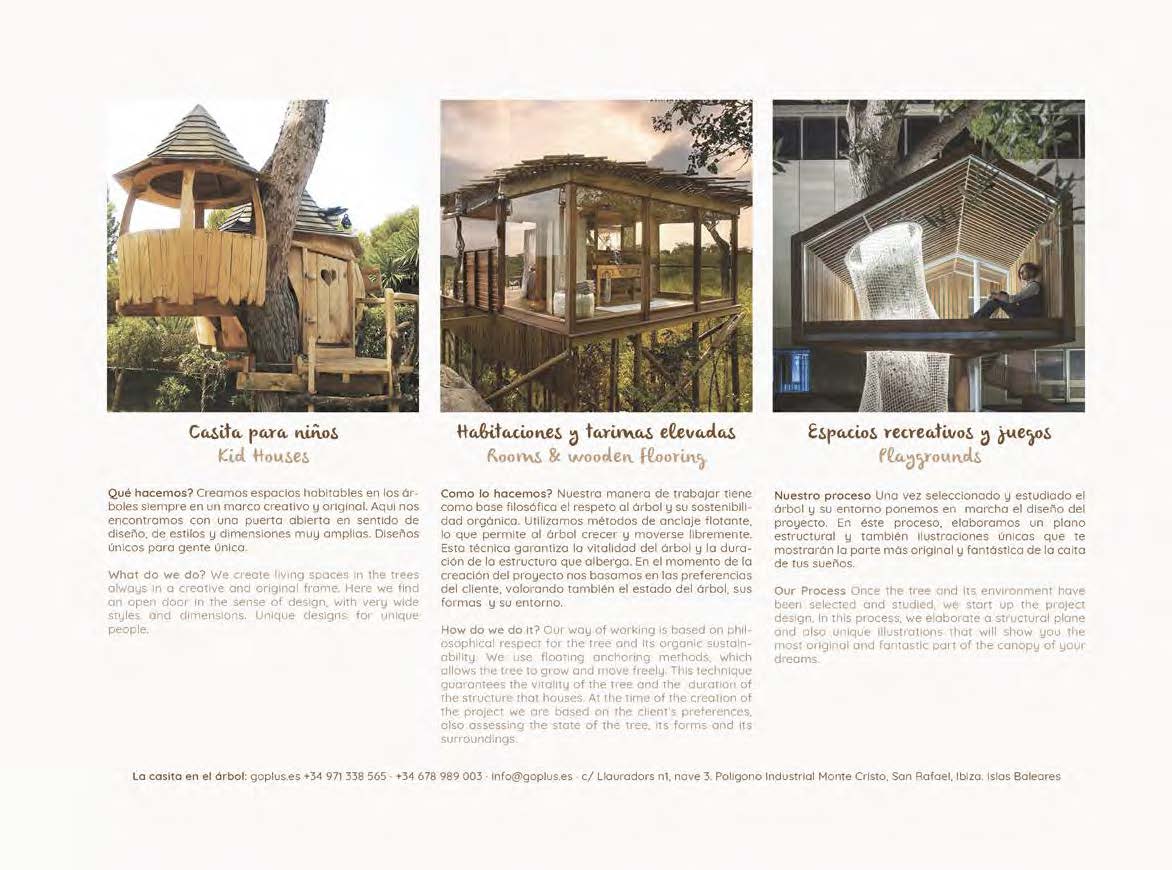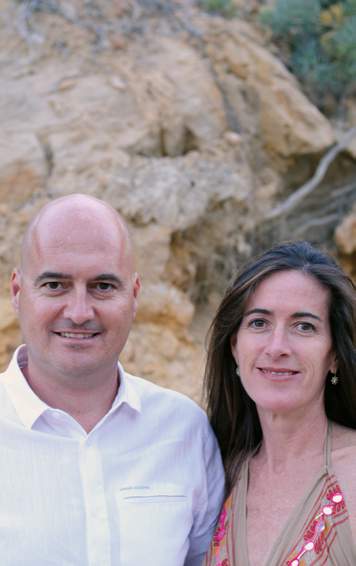
“WE BELIEVE THAT IT IS NECESSARY TO OFFER SOMETHING NEW, SOMETHING DIFFERENT TO WHAT ALREADY EXISTS. THE ONLY OPTION IS TO INNOVATE”
What do you think of the sector as a whole?
We believe that the hotel sector has undergone a huge and positive transformation in recent years, although it is now stuck in a state of forced paralysis thanks to recent regulatory changes that have brought all the investment that was being made grinding to a halt… What positives can you take from all of this? It was necessary to stem the enormous intrusion of the residential sector on the tourism sector, this was and continues to be necessary, but it was not also necessary to freeze investment in the hotel sector, which is what has happened. Cutting down on the illegal use of residential properties for tourism is positive, in our opinion, and we hope that the action will bear fruit in the short term. REFURBISH
What is the first thing to be analysed when taking on a new project?
In this specific case, in the project for the Hotel Xereca, we took on the roles of promotor and architect, which forced us to have a much broader vision of the project. We have had to work very hard to solve issues that we generally do not have to deal with, including the financial aspect and the management of the establishment. There is no doubt that our first priority was the quality of the design, and being both promotor and architect allowed us the right amount of freedom to be able to move the project forward in our own way… within the bounds of the regulations in force. Many years passed from the beginning of the project until the doors were opened and there were many modifications along the way to urban and tourist regulations to which we have adapted as and when necessary.
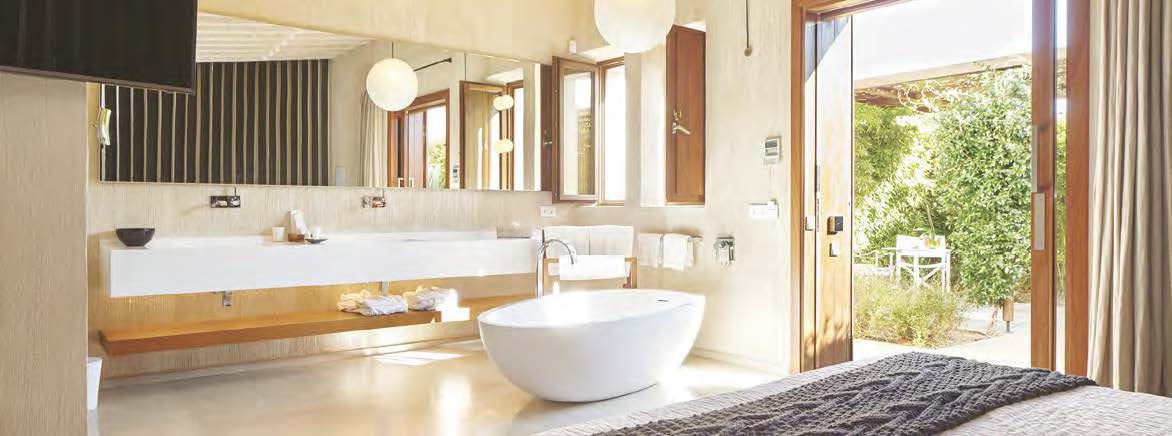
And from your point of view, what are the major values that should be emphasisedwhen planning a hotel building such as Xereca? (Functionality, eco-efficiency,sustainability, price, human relationships, etc.)
The Business Plan is fundamental to Xereca, it is difficult to carry out a product with such high quality with only 11 rooms. In our case, we made it a priority to create a highquality designer space that would be truly attractive to an extremely demanding public, with exceptional services that make the location highly exclusive.
How should a new hotel establishment relate to the environment (Ibiza)?
First, identifying the option that is viable, administratively speaking, the type of establishment that must fit into the environment in which it is to be located, which tends to be the most difficult part in Ibiza…And to its guests? We believe that it is necessary to offer something new, something different to what already exists. The ONLY option is to innovate. What steps need to be analysed? Nowadays, the most difficult thing is to balance the financial aspect, the business plan has got to be consistent with the location chosen and the investment anticipated. In Ibiza, options to create a new hotel establishment nowadays are extremely limited, not to say inexistent, meaning that the only option is the conversion of an existing establishment, which entails an in-depth analysis that is difficult to describe here.
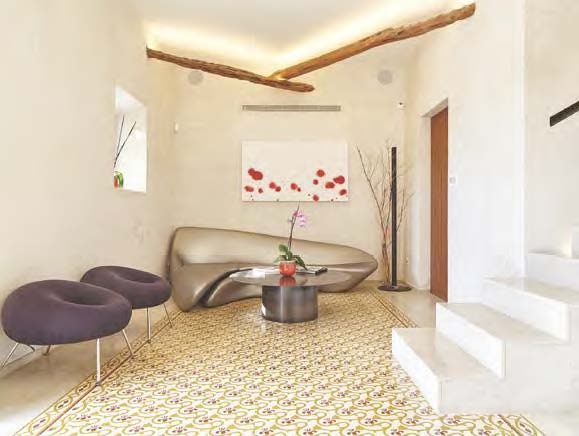
What are the current fields of activity of the Carreño siblings?
We both head up our architectural studios separately and we get together to work on projects for which we act as promotors as well. We work very well together for our own projects. For example, we are currently moving forward with the expansion of Xereca and other investments in the residential and tourist sectors. What does your architecture contribute to other areas? (decoration, design, etc.) We are both very used to working in all areas of architecture at a professional level, which means that it is fairly simple to apply it to our own projects when we act as promotors as well. We personally believe that the greatest gain from this experience comes in the other direction, coming when the experience we have as hoteliers influences our daily work as architects. The development of Xereca is giving us a much broader vision of architecture and gives us the ability to take on other hotel projects as architects because we understand the business from the inside out.
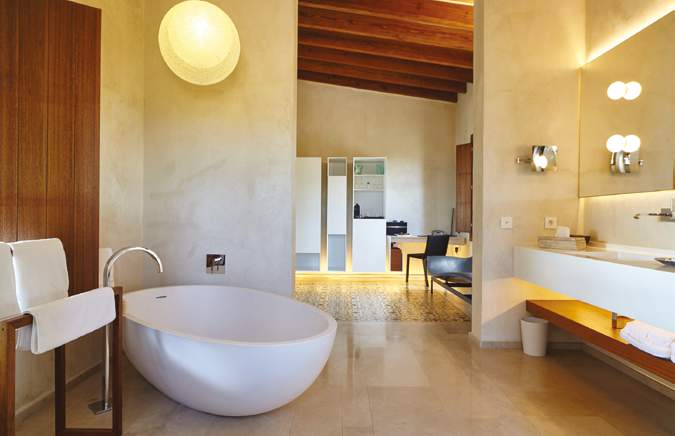
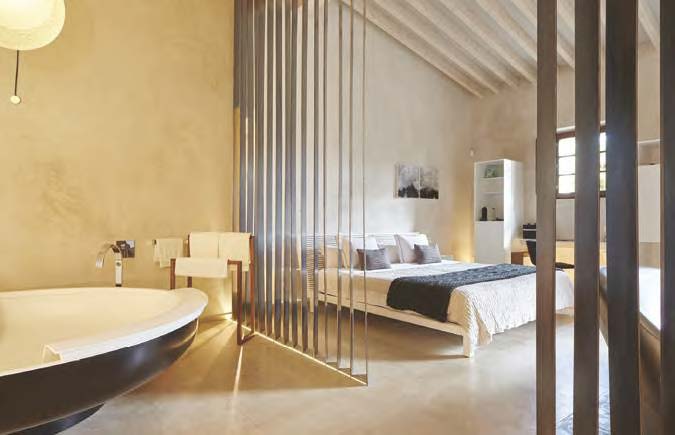
In these difficult times, what should the priority of an architectural studio be?
To innovate, be more creative, commit to excellence. There is no other option. Is internationalisation the future of the sector? Without a shadow of a doubt. Ibiza is a fabulous ‘experimental workshop’ where unique things are done at a global level. All the experience gained from projects executed in Ibiza must be applied to other places… above all because there is an enormous demand at an international level for architects with experience of ‘unique experiences’, such as that gained here. Or, on the other hand, is renovation and refurbishment the area that should be given a higher priority? Without a doubt, our work is tied to refurbishment and renovation, that is inevitable in Ibiza, but it is not something new in our times, this has been the way of work for the last 20 years… which is why we do not expect to see any change. New construction has not been relevant to our work at any time, it has always been a small percentage of the work we do and we understand that this is not going to change in difficult times. We think that there are many buildings found in better locations that require wholesale renovation, a facelift, in order to improve the image of what is there.
What major elements make the Xereca hotel project a clear example of environmental sustainability?
The way we manage WATER. For us, it is a fundamental natural resource and one that is very scarce, which is why we recycle and reuse 100% of the water consumed on the estate. This allows us to avoid discharge into the subsoil and carry out an agricultural operation with minimal consumption. We have enormous water storage tanks that collect water from everywhere, which allows us to cover a large amount of the supply we need ourselves. On the estate, there is a very old well located next to the mill, which we look after with considerable care.
In conclusion, what is your studio working on at the moment?
We both work as architects separately, but basically we work in the high-end residential sector, and residential and tourist renovation.
Over four thousand years of the profession’s existence, hundreds of people have given their own definitions of what architecture is. What is architecture for Jordi and Maria Carreño?
It is something that we agree on fairly well. We understand architecture as our ability to make an impact on the environment, creating spaces that are beautiful, attractive and unique for humans, always committed to
a respectful integration with the environment in which it is located.
According to the architect Kenneth Frampton, modern architecture is “Making a statement about what is happening.” Do you share that opinion?
No, in our view that is an overly ‘egocentric’ claim for architecture. We do not believe that the architect has to be ‘him- or herself ‘ as a person giving a statement about how they feel, but rather it is the work itself that must make the statement and enter into a dialogue with the people who live there and with the environment that surrounds it. We think that architecture is far above its creators, given that its impact on a place and time is always greater than any particular expression of an individual.

How would you judge the present time for architecture in Ibiza?
Architecture and architects have never been better, the problem lies with excessive administrative regulations, which make our profession truly difficult. The waiting periods that we experience in Ibiza when applying for permits are unheard of anywhere else IN THE WORLD. This situation leads to a multitude of other problems and finally results in an enormous decline in architectural quality, given that we are forced to spend vast amounts of time and effort tackling administrative problems instead of working on our actual job.
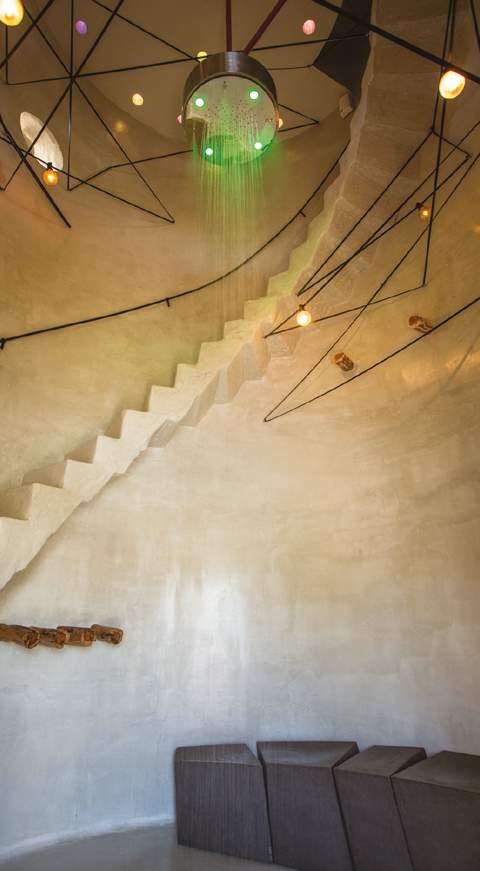
What errors do you think have been made?
Without a doubt, the incredible politicisation that exists in urban planning. Every two years, we get new regulations that modify the existing ones, which creates huge legal instability. For a long time now, we have been calling for consensus with regard to urban planning and REAL centralisation of all the building licence administrative management processes… The Consell de Ibiza should bring together the granting of ALL the declarations necessary to obtain a permit under a single department, as well as a super-department of urban planning common across the entire island. It is necessary to update the true built area of the island, regulate the steps to be taken with regard to the numerous urban planning irregularities that have taken place and unify criteria in order to avoid the enormous amount of illegal activities that currently occurs.
From your point of view, what basic steps should be taken in order to establish a roadmap for the future that builds confidence? Do you think that Boards of Architects take the correct measures to encourage the development of the profession?
They do what they can, but we are a group that must stay at the very edge of shifting political trends and that, in Ibiza, is somewhat difficult. Pushing to improve our profession without falling into the trap of politicising the profession is nigh on impossible, which weakens us as a group. What more would you ask of them? You cannot ask any more of them than what they do now, we think that they are doing a good job, given how difficult it is to navigate the political situations for a group like ours.
The issue of Architectural tenders and their scarcity is a sensitiveone, do you think that the Government is doing what is appropriate in this area? NO What would you change or suggest?
As always… there is a lack of transparency in the awarding of tenders. This undermines the morale of any studio that makes the huge effort requires to take part in a tender for the government.
On the other hand, with regard to investment activity in renovation work, what would you suggest to the Government?
That they streamline the paperwork… if the government would just do its job, it would be enough, if they just abided by the 3 months allowed them for the awarding of declarations, that would be more than adequate. There are currently numerous functions and declarations for a single renovation project, which do no more than hamper investment.
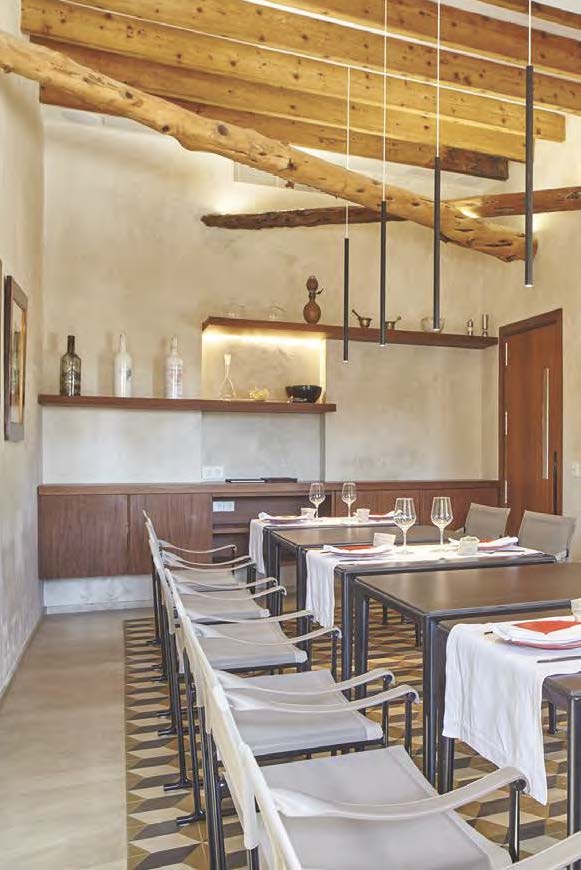
With regard to the problematic issue of the demand for tenancies forworkers, what would you suggest to the Government?
It is simple: Modify obsolete regulations in force for more than 25 years that obstruct the development of small homes in tourist areas. There needs to be a liberation of urban land with capacity to carry out housing
projects measuring 35-40 m2, studio homes, which can be rented at a low price to workers during the season.
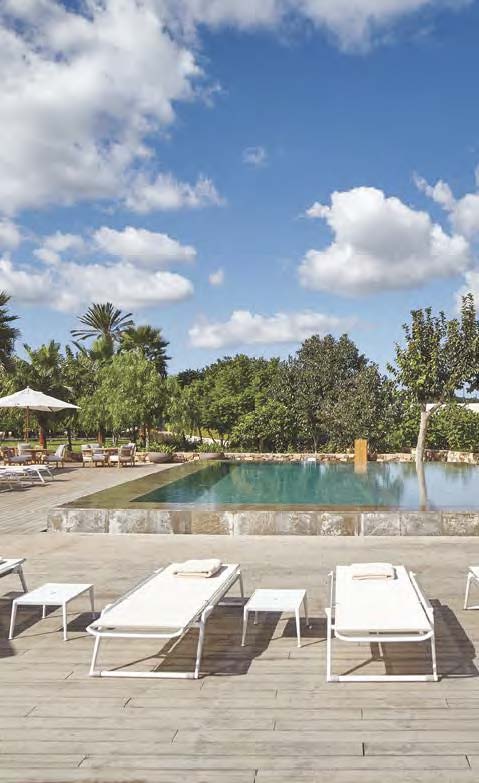
We are not trying to reinvent the wheel, this is how the problem has been solved in cities with the same problem during times of high economic development. The price of land must be reduced to allow development of low-cost homes, this is the only way to bring more urban land onto the market, there is no other solution. Anything else that they do will be useless.
How far do you think that the design of architecture is limited or framed by economic and financial demands?
We do not believe that it is limited or framed in any way by economic and financial demands. Obsolete regulations from certain municipalities make innovative and flexible responses very difficult. We are of the opinion that it is possible to create marvellous architecture regardless of the cost, you just need to be creative about it. The clearest example we have of this is Alejandro Aravena’s 2016 Pritzker award, which has been called “architecture for poor people”… a clear example that it is possible to do ARCHITECTURE IN CAPITAL LETTERS without being limited by economic demands.
In conclusion, what projects inspire your studio?
Maybe because we are siblings, our greatest inspirations are those drawn from our parents… without a doubt the widest and best education that anyone could wish for before becoming an architect. We owe it all to them.
